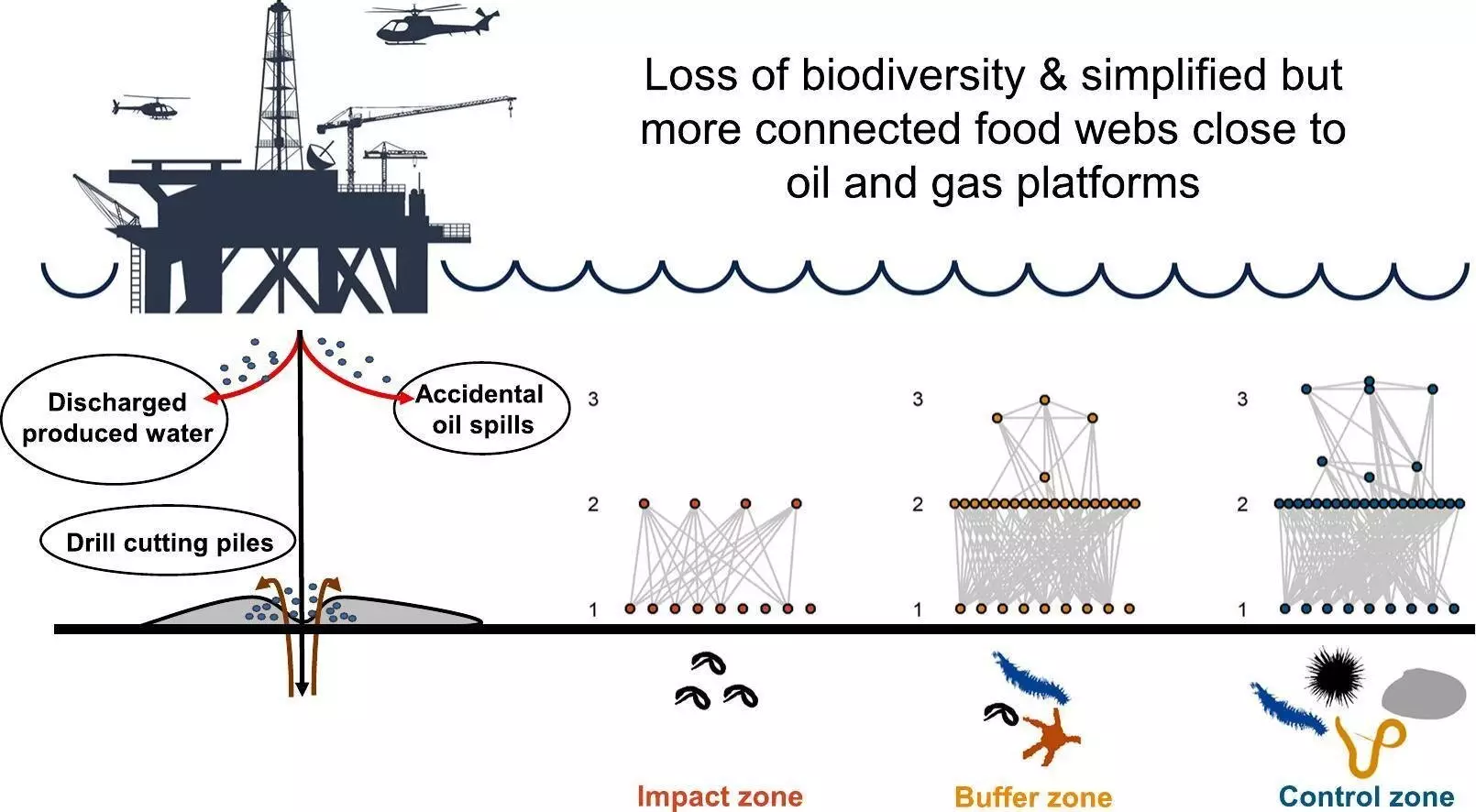Recent investigations into oil and gas extraction in the North Sea have unveiled distressing truths about environmental degradation. Research conducted by esteemed institutions, including the University of Essex and the Natural History Museum, exposes a staggering increase in pollution levels near offshore drilling sites. The data reveals that pollution can soar by more than 10,000% within just 500 meters of these platforms. This alarming figure raises questions about the sustainability of such operations and compels us to reevaluate the ongoing commitment to fossil fuel exploration amidst pressing climate concerns.
The Impact on Marine Biodiversity
Perhaps most concerning is the substantial decline in marine biodiversity accompanying these extraction activities. The research findings indicate a nearly 30% reduction in species richness within proximity to oil and gas platforms. This significant drop is correlated with the accumulation of harmful pollutants, including hydrocarbons and heavy metals like lead and copper. Such toxins not only poison the seabed but also disrupt the intricate balance of marine ecosystems, threatening the survival of various species.
The study meticulously analyzed data spanning over three decades, focusing on 4,216 species and their habitats from 1981 to 2012 around nine distinct oil and gas platforms off the coasts of Scotland and England. The results are sobering: as oil extraction operations commenced, a clear decline in both the number and variety of species was observed in contaminated sediments. This decline in biodiversity has serious implications for the ecological fabric of our oceans, as each species plays a crucial role in maintaining the complex web of life.
Decimating Food Webs
The ramifications of such biodiversity loss extend far beyond individual species; they permeate entire food webs. With fewer connections among species, the intricacy and resilience of these networks diminish, leading to ecosystems that are less able to withstand environmental changes. The impact is particularly pronounced among larger predator species, such as starfish, which have all but vanished near drilling sites. Paradoxically, smaller, hardier organisms, like worms, thrive in these polluted conditions, exacerbating ecological imbalances.
Zelin Chen, a leading researcher in this project, emphasizes the gravity of these findings, noting that previous understanding of hydrocarbon extraction’s impact was primarily anecdotal. This study provides empirical evidence of the structural changes in marine communities, solidifying the notion that oil and gas extraction fundamentally alters the dynamics of ocean ecosystems. Such clear trends necessitate immediate attention and intervention.
Legacy of Neglect
The research team not only focused on current impacts but also the long-term legacy of oil and gas infrastructure on marine environments. As many of these platforms age and approach the end of their operational life, the need for scientific diligence in decommissioning practices becomes paramount. Dr. Natalie Hicks highlights the importance of industry collaboration with scientific communities and government entities to ensure that decommissioning is carried out with environmental health at the forefront.
Ignoring the deleterious effects of these platforms could leave behind a legacy of environmental peril. As the findings illustrate, the repercussions of fossil fuel extraction on marine biodiversity may be enduring, impacting generations to come. The urgency of addressing this legacy cannot be overstated, especially as many platforms are soon to be retired from operation.
Rallying for Sustainable Futures
In light of these findings, it is evident that the time for complacency has passed. Protecting the ocean—which serves as a vital reservoir of biodiversity and a powerful ally in mitigating climate change—demands a concerted effort to shift our energy paradigm. The marine environment is in peril, and the health of these ecosystems is inextricably linked to human well-being and the stability of the planet.
Dr. Gareth Thomas from the Natural History Museum articulately conveys the essence of the collaborative study, urging immediate scientific engagement and policy reform. The simplification of food webs and the subsequent favoring of resilient species over delicate ones reveal an urgent need for protective measures to preserve marine ecosystems.
The alarming statistics unearthed by this research serve as a startling reminder that our insatiable appetite for fossil fuels comes at a steep price. It beckons us to rethink our approach toward energy consumption and urges us to explore sustainable alternatives that respect the delicate balance of marine ecosystems while meeting our energy needs. By prioritizing environmental stewardship over convenience, we can forge a path toward a healthier, more resilient planet for future generations.


Leave a Reply